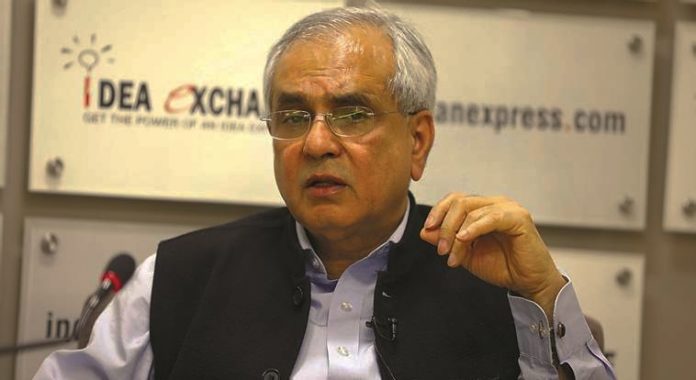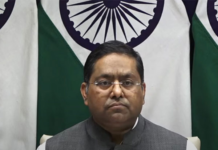New Delhi (NVI): Indian economy will be among the top economies in the world in the next few years using science, technology, and innovation in all sectors, bouncing back soon from the after-effects of COVID-19, NITI Aayog Vice-Chairman Rajiv Kumar has said.
Kumar said this while addressing a webinar organised to celebrate 50 years of the Department of Science and Technology (DST) recently, the Ministry of Science & Technology said in a statement.
“Steps and reforms have been taken by the government in all the sectors, like agriculture, modern medicine, traditional medicine, New Education Policy, Small and Medium Enterprises, labour sector and so on, to target being among the world’s top three economies,” he added in a statement.
Speaking that the pandemic has changed many things and shown new ways of doing things, Kumar said that the government need to have an innovative economic system in the post-COVID world to remain floating.
He added that the post-COVID economy has been in the recovery mode after the first quarter and hoped that Indian economy will bounce back in next few quarters from the effects of COVID-19 disruptions, which will grow by average 7-8 percent in next 20-30 years and become the third-largest economy by 2047.
Kumar also highlighted the structural reforms by the government to help Indian economy and said, “The government is committed to improving the ease of doing business, innovation ecosystem where every school student has access to the innovative tools and trends.”
During the webinar, DST Secretary Prof Ashutosh Sharma also highlighted the various steps DST has taken to help Indian economy grow at the desired rate by using science, technology, and innovation in all fields like clean energy, health, education, transport, agriculture, technologies among others.
He informed about the steps DST has taken to give flexibility to scientists to deliver the desired results for technology missions and steps taken to help increase the number of startups using innovation, science, and technology.
“DST in the last 50 years has done a lot of building of capacity, in all areas. India is number three in science publication in the world, and DST has a great role in it. Our last 50 years has been glorious, but our next 50 years should exceed the last 50 years,” Sharma said.
He further added that, while keeping all the basic research and development in place and enhancing it, we have introduced a problem-solving approach to research. The government is ready for the future, and there is a whole lot of new emphasis on innovation and startups and new models of innovation.
Apart from this, three Centre of Excellence (CoE) set up under National Mission for Sustaining the Himalayan Ecosystem (NMSHE) at Central Universities from two north-eastern states, and Kashmir were also inaugurated by Secretary, DST, Ashutosh Sharma, recently through video conferencing.
-RJV








